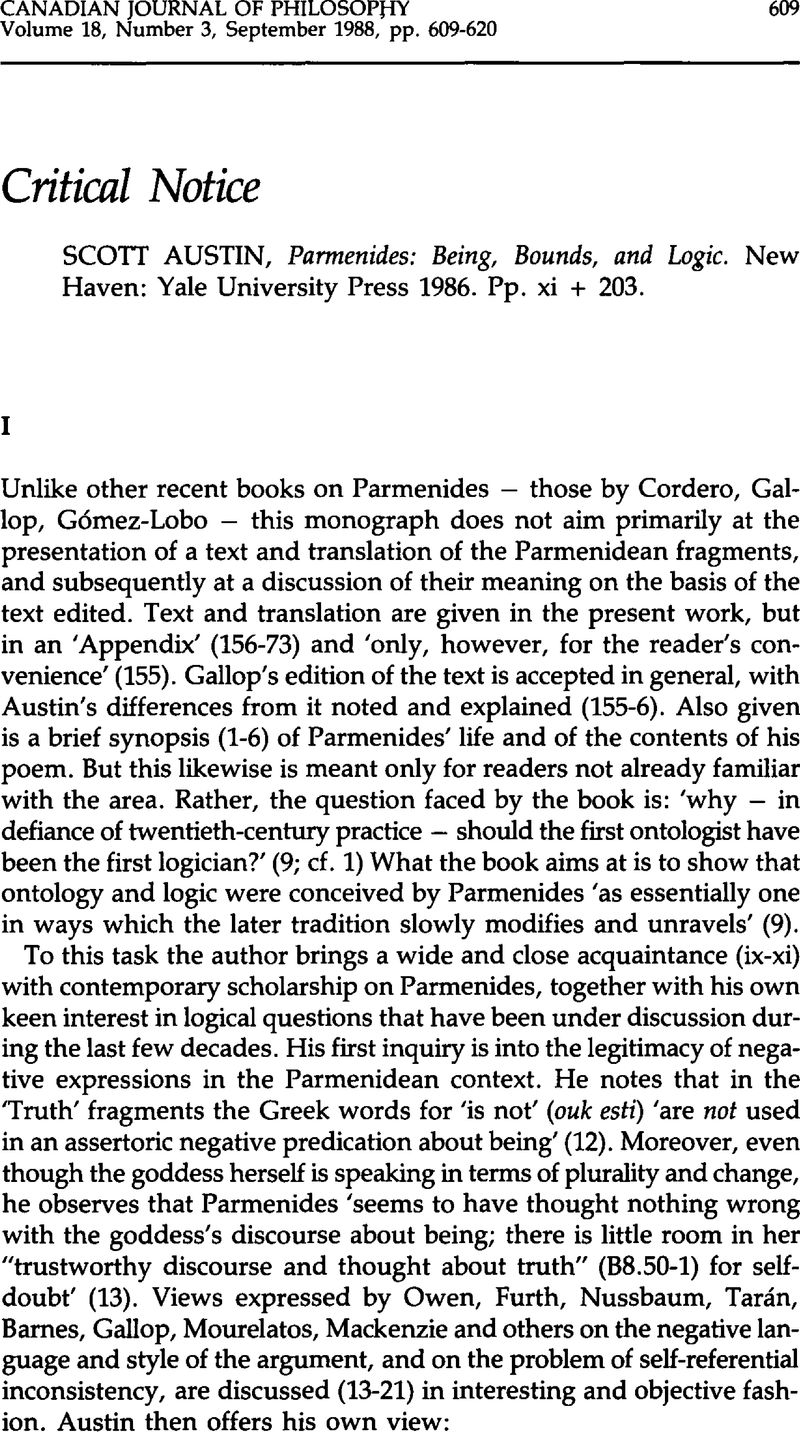No CrossRef data available.
Published online by Cambridge University Press: 01 January 2020

1 I had occasion to emphasize this point in a review of Gallop's Parmenides of Elea, The University of Toronto Quarterly 54 (1985), 401, against the claim that the way of seeming ‘was totally misunderstood both by Aristotle and in later antiquity.’
2 See de Rijk, M.L. ‘Did Parmenides Reject the Sensible World?’ in Graceful Reason, Gerson, Lloyd P. ed. (Toronto: Pontifical Institute of Mediaeval Studies 1983), 29-53Google Scholar. ‘It is highly misleading, accordingly, to speak as many critics have done of “the world of Doxa” as opposed to the world of “Aletheia.” … But materially speaking there is only one world, that of sense experience, the world that includes all of us and all and every visible and tangible thing’ (Ibid., 52).
3 Cf.: ‘ … it is misleading to describe the meaning of esli (absolutely or on a certain occasion) in ancient Greek philosophy as one in which the existential and copulative senses are “fused”’ (Hintikka, Jaakko ‘The Varieties of Being in Aristotle,’ in The Logic of Being, Knuuttila, S. and Hintikka, J. eds. [Dordrecht, Holland: D. Reidel 1986], 96)Google Scholar. Hintikka stressed in his article that ‘Aristotle does not recognize the Frege-Russell ambiguity of “is,” ’ (81), and that ‘essential predication involves identification’ (93).
4 Leibniz, Monadology, 31Google Scholar. See also:’ … the other great principle of our reasoning, viz., that of essences; that is, the principle of identity or contradiction’ (The Leibniz-Clarke Correspondence, Alexander, H.G. ed. [New York: Barnes & Noble 1956; 1970], 57 [no. 10]; cf. 15 [no. 1) and 96 [no. 130])Google Scholar.
5 Frs. 2.7.-8 and 6.1. The manuscript reading of Fr. 6.1 brings out more forcefully this strict correspondence of speech and thought – ‘Ce rapport étroit entre Ia pensée, le langage et l’être’ (Nestor-Luis Cordero, Les deux chemins de Parménide [Paris: Vrin 1984), 110-11).